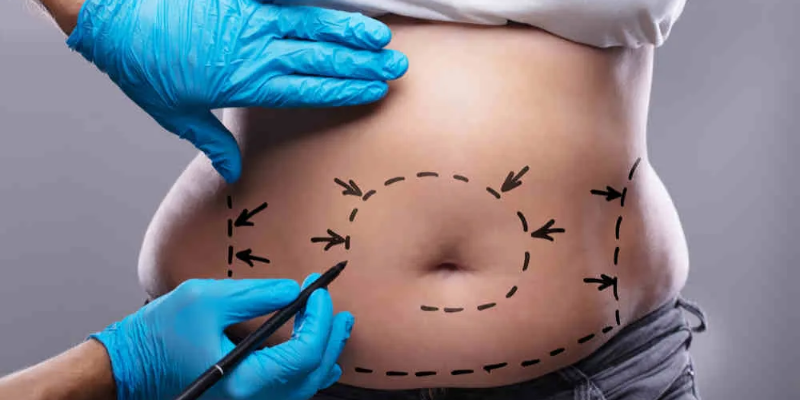Weight Loss Options
Weight loss options are defined as being overweight at a level that puts one’s health at risk. Obesity is described as having a BMI of 35-40. Bariatric surgery is used if a person is unable to shed weight and is experiencing health complications as a result of obesity. If you’re over 40, you’re eligible for bariatric surgery, which is also known as bariatric surgery. Some patients’ major chronic conditions might exacerbate or even triggering by obesity-relate issues. In order to maintain a healthy weight and lead a normal life, many people seek out obesity surgery. A variety of procedures are used to treat obesity, based on the patient’s specific needs. Surgical procedures that interfere with nutrition absorption, surgical procedures that inhibit nutrient absorption are examples of these techniques.
Restrictive operations are being use more commonly these days due to the ease with which their adverse consequences may avoid. People who are going to undergo weight loss procedures should in excellent condition and free of any immune system disorders. Patients’ mental health is also take into consideration since it has a direct impact on their recovery after surgery. Smoking and drinking should avoid for a period of time before having weight loss surgery. As a result, smoking may impede the healing process by increasing tissue damage. Obesity surgery should only perform by a doctor with extensive training and expertise in both theory and practice. Because of this, it is important to choose a doctor wisely.
Weight Loss Options Review
In bariatric surgery, Tube Stomach Surgery is one of the procedures use to limit the amount of food that a patient may consume. Laparoscopic operations, which don’t need big incisions in the body, require a shorter recovery period. Patients are up and at work in no time, and the discomfort after surgery is negligible. This procedure involves cutting the stomach in half and shaping it into the form of a little banana. After a sleeve gastrectomy, you may either exercise more or eat less. the volume of the stomach; Early saturation with food is possible since the volume is lowering to 150-200 cc. As a result of the removal of the gralin-secreting portion of the stomach, the patient’s appetite decreases significantly. Weight loss occurs more quickly in this situation.
After a sleeve gastrectomy, you’ll need to remain in the hospital for roughly 3 days. Patients may resume their regular jobs after a week. Up to 80% of extra weight is removing in the first year and a half after the procedure. Within the first four months, the majority of the excess weight is shedding. Weight reduction often comes to a halt after about a year and a half. After bariatric surgery, nausea is the most prevalent complication. Consequently, many patients are terrifying to become sick. It is possible to avoid nausea after a surgical procedure by using anti-nausea medicines in the following days, if necessary.
After Weight Loss Options
Aside from that, some people become sensitive to scents and suffer from nausea. A diminished granule secretion owing to the stomach being remove causes a reduction of hunger, which in turn causes increase sensitivity to odor. In the initial few days after surgery, they are common. To avoid nausea in the days that follow, cease eating as soon as you are satisfying with your food intake. In addition, chewing food thoroughly for a lengthy period of time avoids nausea. Sleeve gastrectomy patients may have nausea and other consequences as a result of dietary missteps. As a result, a diet high in protein and healthy fats is recommending. Stability in the eating plan is beneficial for weight loss as well as keeping a healthy lifestyle.
Having gastric sleeve surgery might have a significant impact on a person’s immune system. The success rate of surgery may increase by thoroughly scanning and assessing the patient’s general health history and planning the operation accordingly. Sleeve gastrectomy surgery is not recommend for certain patient types. The following is a list of these patients:
- Instability in the mind and psychological issues
- Addiction to drugs or other dangerous substances
- Anesthesia is a significant risk factor.
- The patient’s expectations are unrealistic and he or she views it as a miraculous weight loss treatment.
- Insufficient post-operative care for the patient, both physically and emotionally
- The patient’s eating problems, such as blumia, are out of control.
Weight Loss Options Result
Patients with a BMI of 40 or above may benefit from gastric sleeve surgery. For obese individuals with obesity-related comorbidities and BMI > 35, this therapy strategy is recommended. The patient’s incapacity to lose weight by other means, as well as his or her mental condition and readiness for surgery, are all issues that should take into consideration while doing sleeve gastrectomy. General anesthesia is require for gastric sleeve surgery, which is base on removing a portion of the patient’s stomach and forming it into a tube. After such a significant application, it is critical that the patient’s family give emotional support.
In addition, the postoperative follow-up phase involves monitoring the length of weight reduction following surgery, keeping problems under control, enhancing quality of life, and changing the dosages of the medications used in the procedure. At the same time, the hospital stay after sleeve gastrectomy is between one and two days. In addition to urinalysis and blood sugar testing, several tests are performing throughout this procedure.
Sleeve gastrectomy helps people lose weight rapidly. Changing one’s lifestyle and eating habits is critical in this process. Postoperative gastric sleeve diet is frequently recommending. Fattening meals, fried foods, carbonated and alcoholic drinks should avoid. Along with the diets, exercise should a part of one’s life.
The sleeve gastrectomy weight reduction rate is fairly substantial. Studies suggest that sleeve gastrectomy patients lose an average of 66% of their overall weight. Moreover, the sensation of fullness acquired by eating less reduces the chance of regaining lost weight. This procedure not only helps the patient lose weight but also helps them avoid health issues associated with obesity. Sleeve gastrectomy has the benefit of not requiring a foreign body adaptation to the stomach.
My Options for Weight Loss Without Surgery as a Patient in Their 40ties
Regarding weight loss, it can be challenging to know where to start. There are a few options for those in their 40s who are seeking weight loss without surgery. Making lifestyle changes and taking advantage of the latest medical advances can contribute to successful weight loss. The first step for anyone looking to lose weight without surgery is to make lifestyle changes. Eating a balanced diet with plenty of fruits, vegetables, and whole grains is essential.

Additionally, reducing or eliminating processed and sugary foods can help to reduce calorie intake and promote healthy weight loss. Regular physical activity is also essential. This can include walking, swimming, or biking. In addition to lifestyle changes, there are a few medical advances that can help with weight loss. One such option is prescription medications.

Furthermore, there are several non-surgical treatments, like non surgical gastric bypass balloons, available for those looking to lose weight in their 40s. These treatments include cryolipolysis, which uses cold temperatures to break down fat cells, and ultrasound-assisted liposuction, which uses ultrasound waves to liquefy fat cells before they are removed from the body. Additionally, laser treatments such as Smartlipo are an excellent weight loss without surgery option, which use laser energy to target and remove fat.


